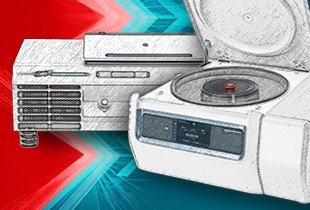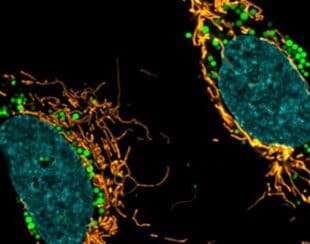
Centrifuges are essential laboratory instruments used to separate components of a mixture based on their density by spinning them at high speeds. While the primary function of a centrifuge is to exert centrifugal force on the samples, certain applications necessitate the inclusion of a refrigeration system.
Why Do Some Centrifuges Have a Refrigeration System?
- Temperature Control and Sample Integrity
One of the foremost reasons centrifuges are equipped with refrigeration systems is to maintain the integrity of temperature-sensitive samples. Biological samples, such as enzymes, proteins, nucleic acids, and live cells, can be highly sensitive to temperature fluctuations. Elevated temperatures resulting from the friction and aerodynamic drag during high-speed centrifugation can degrade or denature these samples, compromising the results. Refrigerated centrifuges mitigate this risk by maintaining a stable, low temperature, typically between 0°C and 4°C.
- Preventing Heat-Induced Artifacts
Certain biochemical reactions are exothermic, meaning they release heat. Without adequate cooling, the temperature inside the centrifuge can rise, potentially causing unwanted reactions or artifacts. For example, in molecular biology, maintaining a cold environment is crucial to prevent the activation of enzymes that could degrade nucleic acids or other sensitive molecules.
- Enhancing Reproducibility and Precision
Consistent temperature control enhances the reproducibility and precision of experimental results. Variations in temperature can lead to inconsistencies in the behavior of samples, affecting the reliability of data. By using a refrigerated centrifuge, scientists ensure that the experimental conditions remain constant, helping lead to more accurate and reproducible outcomes.
F-Gas Regulations and Centrifuge Refrigerants
European Union (E.U.) and U.S. Environmental Protection Agency (EPA) F-gas regulations aim to reduce the emission of fluorinated greenhouse gases to mitigate their impact on climate change. Fluorinated gases, including hydrofluorocarbons (HFCs), perfluorocarbons (PFCs), and sulfur hexafluoride (SF6), have a high global warming potential (GWP). Regulatory bodies in the E.U. and U.S. are implementing regulations to discontinue fluorinated gases as refrigerants, and centrifuge manufacturers must comply to the new prohibition timelines.
Refrigerated centrifuges often utilize HFCs as refrigerants. The F-Gas Regulation directly impacts the design, maintenance, and operation of these centrifuges. Manufacturers must comply with the phasedown requirements, potentially leading to the development of alternative refrigerants with lower GWP.
Thermo Scientific GreenCool Technology – Compliant with the F-Gas Regulation
Thermo Scientific LYNX, Cryofuge, and BIOS Centrifuges with GreenCool Technology feature a next-generation natural refrigerant cooling system. The refrigeration system operates with carbon dioxide (CO2), a natural gas with a Global Warming Potential of 1, which is 1,397 times less impactful to the environment compared to previous technologies and fully compliant with F-Gas regulations. In addition, CO2 does not deplete the ozone layer.
Further benefits: less energy consumption and more sustainable production
GreenCool Technology has led to additional benefits. The updated models have lower energy consumption compared to previous models. The products are lighter and easier to transport. Additionally, the noise level has decreased, helping contribute to a more comfortable work environment in the lab.
Thermo Scientific centrifuges (except for the ventilated compact benchtop centrifuge) are manufactured at our centrifugation excellence center in Osterode am Harz, Germany. The Osterode site was certified in November 2024 as a Thermo Fisher Scientific Zero-Waste Facility. Additionally, Osterode utilizes 100% green energy for manufacturing products. The site is also exploring additional ways to achieve more sustainable production, such as using less hazardous paint technologies, helping reduce overall energy consumption, and employing more sustainable packaging.
Conclusion
Refrigerated centrifuges play a crucial role in preserving the integrity of temperature-sensitive samples, preventing heat-induced artifacts, and helping ensure the reproducibility of experimental results. F-Gas regulations aim to reduce the environmental impact of fluorinated gases. By adhering to these regulations, centrifuge manufacturers and laboratories contribute to global efforts to combat climate change. More efficient cooling systems may also result in reduced energy consumption, helping to save energy costs for laboratories.
Thermo Scientific GreenCool Technology complies with F-Gas regulations, offers reduced energy consumption, and supports other ergonomic factors for the use of our centrifuges. Most centrifuges are produced in Osterode am Harz, Germany, a certified zero-waste facility using 100% green energy.
Learn more at thermofisher.com/greenercentrifuges
© 2025 Thermo Fisher Scientific Inc. All rights reserved. All trademarks are the property of Thermo Fisher Scientific and its subsidiaries unless otherwise specified.




Leave a Reply